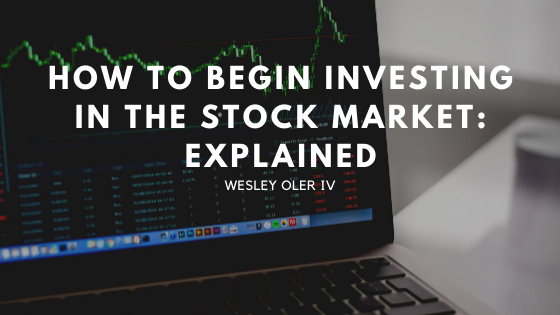Since it began its first trading day, the stock market has been turbulent with crashes during the Great Depression and recent recession, but also resurgence during the 1970s and late 2010s. However, even with the unpredictability of the stock market, it still poises to be a viable option for any investor to begin investing in the stock market. Before beginning to trade in the stock market by buying/selling shares, there are a couple of things you should know first.
The foundation of the stock market:
The stock market consists of exchanges, but the two primary ones are the New York Exchange and NASDAQ. When a company lists a share to sell part ownership, it is called a stock. This stock is listed on one of the exchanges in the effort to bring buyers and sellers in and act as the middleman between buying and selling stocks. However, in most cases, you will need a broker to conduct trading on your behalf. As a broker has more experience and will be able to guide you to increase your investment, it is fundamental to do some research in your area to determine who is the best broker for your budget and investment portfolio.
Defining stock market terms:
When you hear the stock market is either up or down, typically that is mentioning to one of the major market indexes. Market indexes analyze how well or poorly a group of stocks, which in turn indicates how the market as a whole or a specific sector is performing. The major proxies that indicate the performance in the stock market are the S&P 500, NASDAQ, and Dow Jones.
Stock Trading Information:
In an effort to diversify their portfolio to mitigate the risk associated with the stock market, investors do their research on what stocks have the most potential not only in the short-term but in the long-term as well. It is important to note that this does not apply to all investors, as some prefer to engage with stocks constantly by buying/selling stocks frequently instead of holding onto them for as long as profitably possible. A common goal amongst stock traders is to buy short term stocks that increase in value over a short period of time, or buy many stocks at a low price. Day traders are investors who work day in and day out to discover the best deals in stocks and analyze stocks. Active traders only conduct business a handful of times each month. When determining what stock trader to use, determine what your portfolio will look like now and in the near future.
Stay tuned for part 2, coming soon!
Disclaimer: This article is meant strictly for informational purposes. Not intended as financial or investment advice. Do not misuse or misconstrue the information in this article. Seek advice from your personal financial advisor on matters pertaining to investments/finances.
